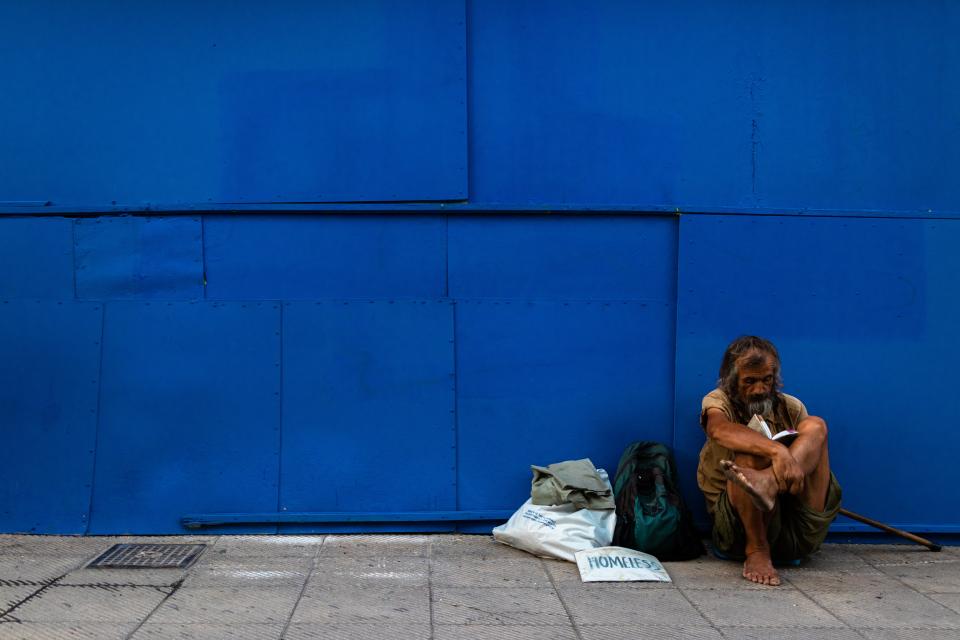Will Postma is an adjunct professor at Wycliffe College and the Executive Director at the Primate’s World Relief and Development Fund (PWRDF), the humanitarian and development arm of the Anglican Church of Canada. Having just come out of the Christmas season, when people’s thoughts readily turn to those living in poverty, Will’s blog is a reminder to be mindful of our poor brothers and sisters year round.
You will always have the poor among you, but you will not always have me.”
These are the words of Jesus, recorded in three of the Gospels: Matthew (26:11); Mark (14:7); and John (12:8). These are words Jesus spoke after expensive perfume was poured on his feet and head. Others were in the house at the time. There developed a bigger discussion. What a waste. The perfume could have been sold for more than a year’s wages. The money could have been better used for the poor.
Fast forward to 2019. The number of poor, expressed as those who are food-insecure, not able to put even two meals of food per day on the table, has increased, to well over 800 million. One in nine people today go to sleep hungry. Sleeping and being hungry don’t go together well, says I, who likes that slice of multigrain bread. Over 850,000 people visit food banks in Canada each and every month – this in a country where the income per capita is over $52,000 per year.
In the work of the Primate’s World Relief and Development Fund, we know too well, too tragically, the suffering in Yemen, the suffering in South Sudan, the suffering in a few square kilometres around Cox’s Bazaar in Bangladesh where 900,000 Rohingya are subsisting, so very barely and so fearful of what the next day may bring.
The suffering is immense, frightening, unfathomable, preventable in a world God created with so much abundance, so much potential.
Is there a game to watch? Can I look away?
Jesus did not look away, he healed, he broke gender barriers, he did not stereotype, he fed the multitudes. “Blessed are the poor in spirit,” Jesus said … using the same Greek word, ptóchos, as he did in John 12:8 when he told Judas Iscariot to back off, to stop dipping into the tax revenue and donation jar and get a handle on his own priorities.
“Blessed are the poor in spirit, for theirs is the Kingdom of God.”
Jesus is right, the poor are always with us. Materially, socially, spiritually. Or to add in some reactive human agency … marginalized, excluded, impoverished, conflicted, experiencing lack of fair access to health care, education, and opportunity.
People in Tanzania or Bangladesh where I have lived, have not historically talked about poverty as much as is the case today, where there is growing inequality, an ethos of accumulation rather than an appreciation of enough.
Oh yes, when Jesus reminded the disciples that you will always have the poor among you, the disciples and all those listening would have known what the book of Deuteronomy said, from which Jesus drew his words
“If among you, one of your brothers should become poor, in any of your towns within your land that the Lord your God is giving you, you shall not harden your heart or shut your hand against your poor brother, but you shall open your hand to him and lend him sufficient for his need, whatever it may be … For the poor, you will always have with you in the land. Therefore I command you, ‘You shall open wide your hand to your brother, to the needy and to the poor, in your land.’” (Deuteronomy 15:7-11)
Open your hand, open your hand wide. Put priority on the presence of Jesus, be inspired by how Jesus showed compassion, without judgement. Draw inspiration from how Jesus cared for the hurting and hungry.
In the din of noise in that room in Bethany, as perfume was being poured, as he was brought ever closer to his death - and resurrection - Jesus reminded his learned disciples that pausing and investing time in Him can be a beautiful thing.
***
If this blog post resonated with you, you might be interested in reading about Wycliffe's Master of Theological Studies in Development (MTSD) program.





